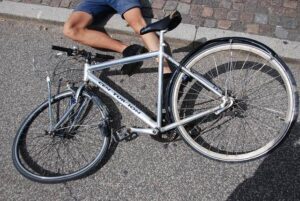
The hidden dangers of rental waivers
Summer vacation is just weeks away for many Americans. That means travel, campouts, fireworks, fun in the sun, and beach outings – among others.
Most people let their guard down when they take off for a few days. But this is the time when injuries and accidents pile up, especially among children.
Consider these stats from the Consumer Product Safety Commission from its Kids in Danger study:
- Injuries to children ages 14 and under are most likely to happen in the summer months.
- Playground activities have been the leading cause of consumer product-related injuries that occur outside of the home for children ages 1-9 for the last 10 years in a row.
- Trampolines are now the second highest cause of consumer-product related injury occurring outside the house for children ages 0-4. For children ages 5-9, trampolines are the third highest cause of injury occurring outside the home, behind bicycles and playground equipment.
- Bicycle-related injuries to children ages 0-9 have decreased by 25% between 2014 and 2017.
- Swimming-related injuries have increased by 23% for children ages 0-9. Drowning is the leading cause of accidental death to children ages 1-4 and the second leading cause of accidental death to children ages 5-9, behind motor-vehicle accidents.
And that’s just for the 17 and under crowd.
Adults are not immune to summer recreation injuries. When accidents aren’t your fault, you need to know your rights.
Equipment Rental Waivers
Most people rent bikes, kayaks, paddleboards, and boats, signing waivers without knowing what they agree too.
Many rental agreements include the followings:
- Waiving your right to sue there’s an accident;
- Agreeing to cover equipment damage while in use;
- Acknowledging how to use the equipment;
- Ensuring your state of health and ability to said equipment.
All these commitments and others tucked into rental waivers release companies from liability and place the responsibility solely on the user.
Ensuring Your Safety
The best recourse for safe summer fun is to follow all the safety procedures possible. That means doing the following:
- Take a water safety course or sign up for instruction if the business offers it;
- Wear lifejackets and bike helmets;
- Know the rules of the waterways and have proof in case you need it;
- Conduct a safety check before renting any equipment. This is much like checking a rental car before driving off. You shouldn’t have to pay for someone else’s damaged equipment.
- Know your limits;
- Purchase travel insurance;
- Practice ethical conduct and behavior.
Ensuring your safety ahead of time and following the rules will make your case stronger.
Be safe out there, and if you do have an accident, contact us, and we can assess your legal options – for free.
